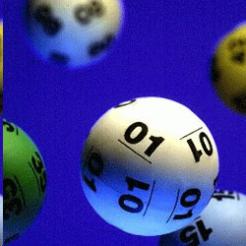Camelot borrowed £75m from its good causes fund in order to ensure the relaunch of the National Lottery’s Lotto game was a success.
The company, which operates the National Lottery, borrowed the money from the fund with the permission of its regulator, the Gambling Commission.
The National Lottery made changes to its flagship game and ticket price last October. The company reported an increase of £40m being raised for charities in the quarter which included the Lotto game change than in the quarter which preceded it.
A Camelot spokeswoman told civilsociety.co.uk that her company had used "some temporary cash flow support" for the introduction of the new Lotto.
A quarter of the money has so far been paid back and the remaining amount will be repaid as part of an "agreed repayment schedule", she said.
“We know that a temporary rebalancing of funds for National Lottery good cause projects in the short term will be hugely beneficial to those projects in the long term, with hundreds of millions of pounds more expected to be raised during the course of the current Lottery licence,” she said.
“We have occasionally used NLDF money in the past to help fund Lotto Superdraws (draws with a guaranteed boosted jackpot), and we know that events like this help drive excitement and keep the game fresh for players.”
The National Lottery generated 22.5 per cent less for good causes between October and December last year than over the same period the year before, but the total raised was up £40m on the previous quarter.
The spokeswoman said that the funding allowed the National Lottery to hold two massive launch events, a £10m jackpot and 1,000 prizes of £20,000 for the first two Saturdays of the new Lottery.
It also helped to start building up a self-supporting promotional prize fund, which will be applied from time to time to allow prizes to be increased significantly on specific draws. She gave an example of this as the 500 raffle winners of £20,000 on Christmas Day which resulted in an overall sales uplift of 56 per cent in the weeks ending 28 December and 4 January compared with the same period in 2012/1013.
She said: “Therefore, our strategy to launch the game with an exciting and enticing pot of boosted prizes, in part funded by the National Lottery Distribution Fund, is already paying impressive dividends.”
A spokesman from the Gambling Commission told civilsociety.co.uk: “As part of its changes to Lotto, Camelot put forward a proposal to change the game mechanic to produce a self-supporting promotional prize fund, which will be applied from time to time to allow prizes to be increased significantly for particular draws (e.g. by means of guaranteed jackpot levels).
“The Commission agreed to the game mechanic proposal for the longer term benefit of good causes. It noted, in particular, that the change in mechanic met the expected criteria for prize promotional funding that the Commission had laid down as its preferred option in the Invitation to Apply for the Third Licence.”
Camelot attracted criticism last year from the Health Lottery when it revealed changes to its pricing. The Health Lottery claimed that it proved there was a need for more competition in the lottery market.








